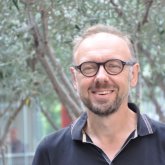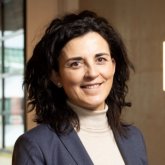Continuous EEG (cEEG) monitoring is essential for managing patients in the intensive care unit (ICU), especially after cardiac arrest or severe brain injury. Yet, clinical use is hampered by limited local expertise and the time-intensive nature of EEG interpretation.
This project aims to develop advanced EEG sensing technology integrated with a cloud-based platform for real-time data analysis and remote expert consultation. The goal is to create an explainable AI-assisted monitoring system that improves decision-making in the ICU and ultimately patient outcomes. The system will be piloted at Medisch Spectrum Twente (MST), with the ambition to scale to (inter)national hospitals.
As PhD candidate, you will contribute to the full development pipeline: from algorithm design and implementation to clinical integration and evaluation. You will also work on improving prognostic models using (neuro-symbolic) AI and develop intuitive, explainable tools for clinicians.
Your Role You will work at the interface of signal processing, AI, and clinical neurophysiology. The project involves close collaboration with MST, the University of Twente TechMed-CNPH and BMS-CodE groups , and industry partners Artinis Medical Systems and Clinical Science Systems.
Information and application
To apply, please submit your application by the button below, this should include:
- Your CV
- A motivation letter
- An academic transcript
- Your contact details
- An academic referee
For more information, contact Prof. Michel van Putten (CNPH) or Dr. Maryam Amir Haeri (BMS): m.j.a.m.vanputten@utwente.nl, m.amirhaeri@utwente.nl.
About the department
Mission statement and research lines Clinical Neurophysiology group (CNPH)
Research in the Clinical Neurophysiology group is at the interface of neuroscience, neurophysiology, and clinical neurology, focusing on cerebral ischemia and epilepsy. In addition, to improve understanding of pathophysiology, we aim to develop novel diagnostic tools and treatments. Our research is truly translational: from the UT to the clinic and back.
The EEG is a key clinical and research tool. EEG signal analysis includes various machine learning techniques to improve diagnostic values and (bedside) application. Applied EEG studies are complemented by biophysical modeling and simulation for improved understanding of underlying neuronal dynamics and prediction of treatment effects. In addition, we use in vitro models consisting of cultured neurons (from rodent or human induced pluripotent stem cells) on multi-electrode arrays to study basic neuronal and synaptic functioning, identify treatment targets, and screen treatments.
About the organisation
The Faculty of Science & Technology (Technische Natuurwetenschappen, TNW) engages some 700 staff members and 2000 students in education and research on the cutting edge of chemical technology, applied physics and biomedical technology. Our fields of application include sustainable energy, process technology and materials science, nanotechnology and technical medicine. As part of a people-first tech university that aims to shape society, individuals and connections, our faculty works together intensively with industrial partners and researchers in the Netherlands and abroad, and conducts extensive research for external commissioning parties and funders. Our research has a high profile both in the Netherlands and internationally and is strengthened by the many young researchers working on innovative projects with as doctoral candidates and post-docs. It has been accommodated in three multidisciplinary UT research institutes: Mesa+ Institute, TechMed Centre and Digital Society Institute.





